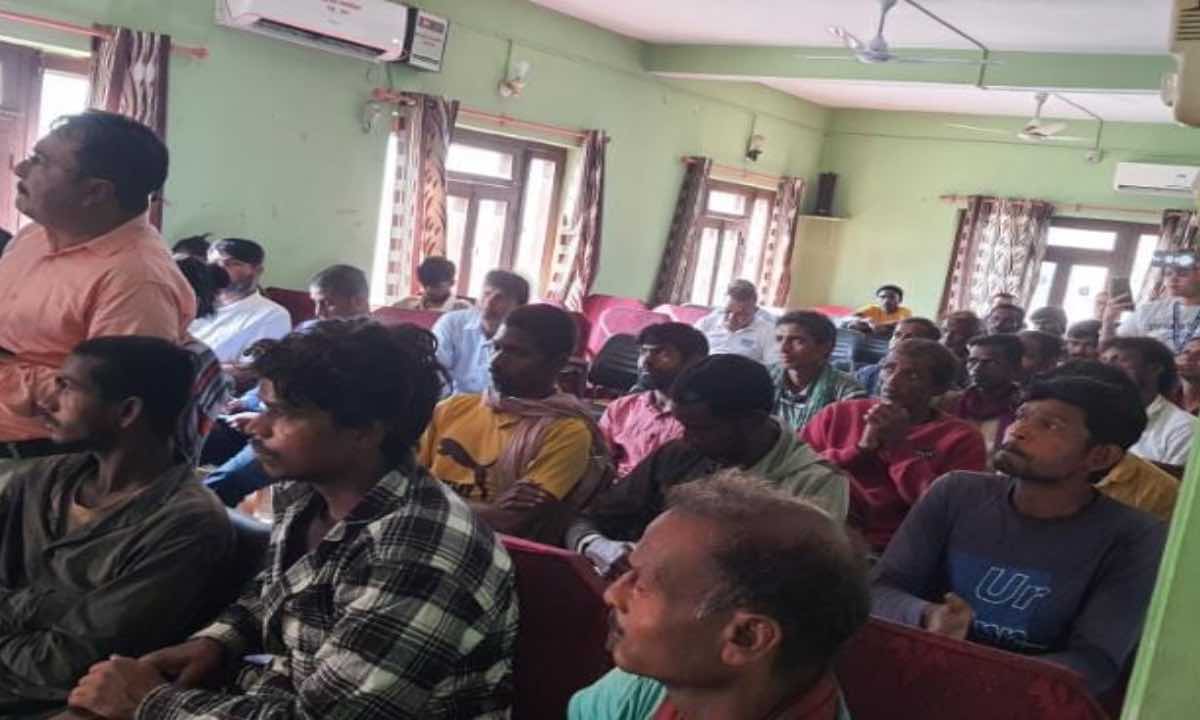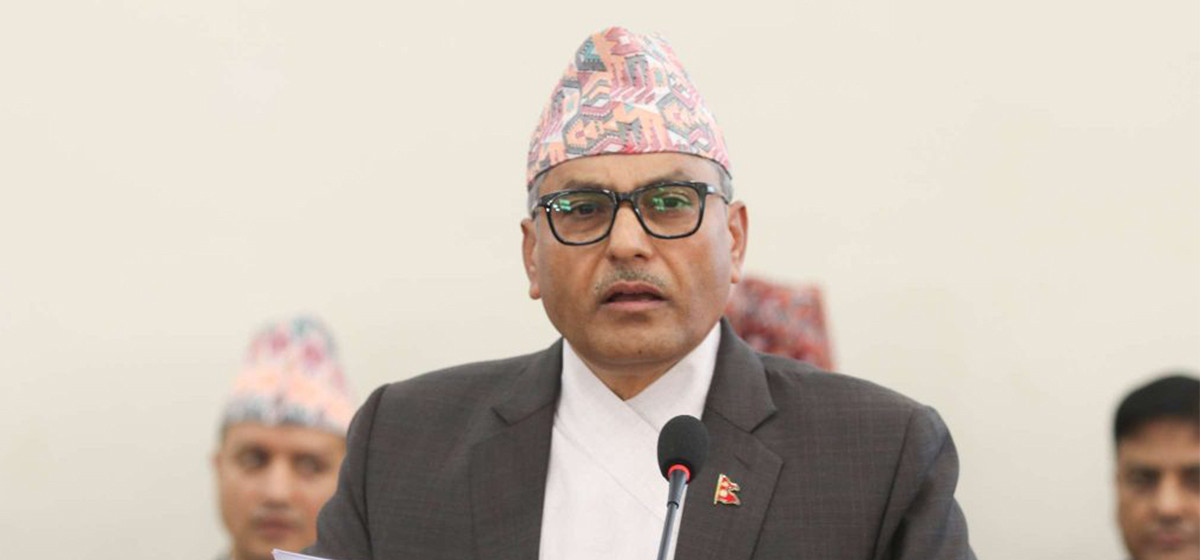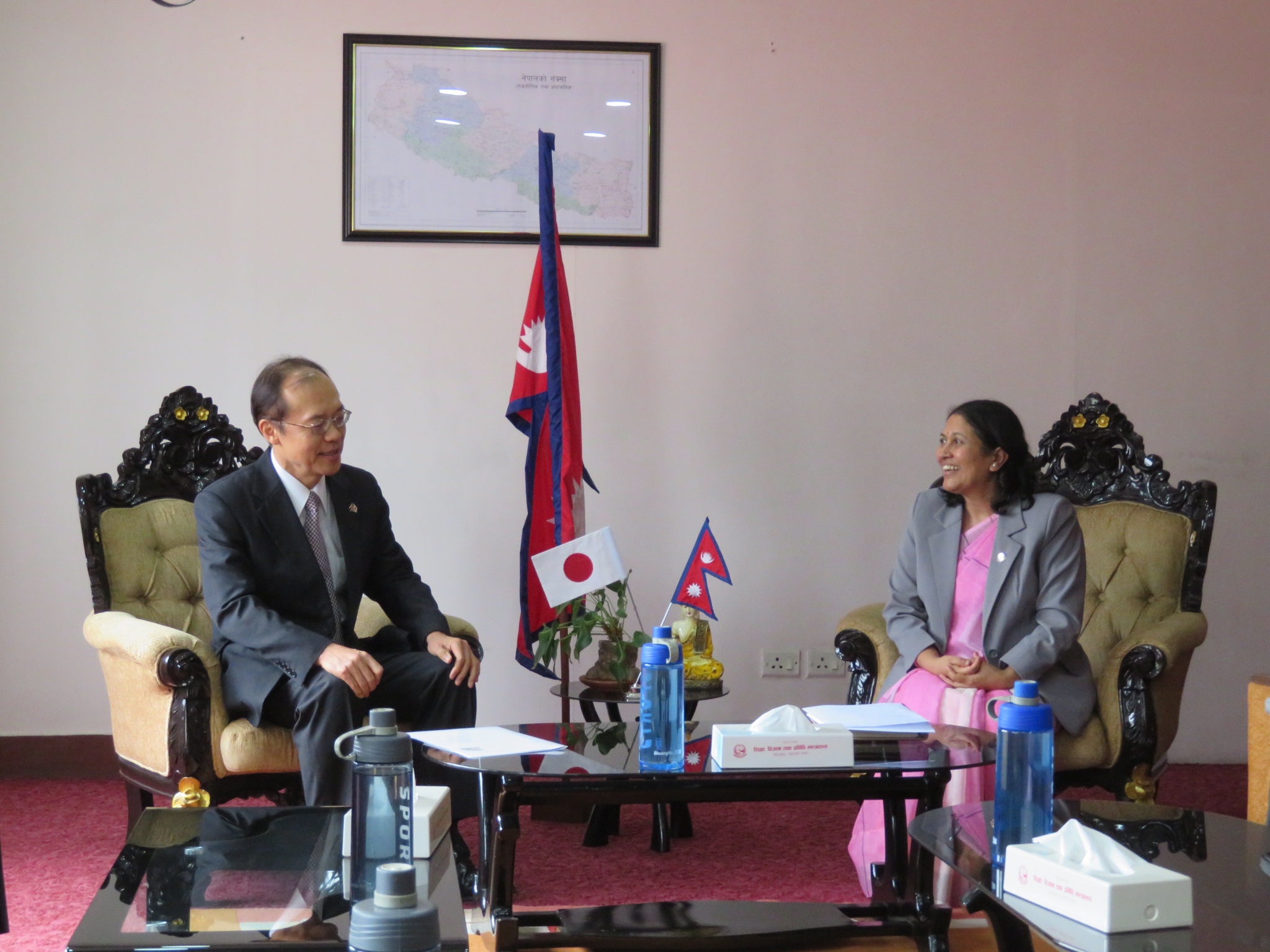
OR
Reinforce institutional, administrative capacity of government: IMF
Published On: April 22, 2018 07:42 AM NPT By: Republica | @RepublicaNepal

KATHMANDU, April 22: The International Monetary Fund (IMF) has said that Nepal needs to strengthen its key institutions and administrative capacity of the government to restore robust growth in the country.
Speaking at a press briefing of the Asia and Pacific Department of the IMF in Washington DC on Friday in the sidelines of ‘2018 Spring Meetings’ of the World Bank and the IMF, senior officials of the Fund said that the risks that the IMF sees are on the downside. They also said the risks were related to the implementation of the new framework for federal fiscal relations as well as vulnerabilities in the banking sector.
Ken Kang, deputy director at the Asia Pacific Department of the IMF, said that the medium-term outlook of Nepal is very much dependent on the needed reforms in order to strengthen key institutions and promote investment and social inclusion.
“In terms of what needs to be done in order to restore robust growth in Nepal, it includes strengthening the key institutions and administrative capacity of the government to address its chronic under-implementation of the budget,” said Kang.
The IMF has projected Nepal’s economy to grow by five percent in the current Fiscal Year 2017/18. The forecast from the Washington-based institution is slightly higher than the growth predictions made public by other multilateral institutions.
The World Bank, in its recent Nepal Development Update report, said that Nepal’s growth is likely to moderate at 4.6 percent in the current fiscal year. Prior to that, another multilateral institution, the Asian Development Bank, forecast the economy of the country to expand by 4.9 percent.
The growth in the current fiscal year is far lower than the last fiscal year when the country’s economy grew by an estimated rate of 6.94 percent, according to the Central Bureau of Statistics. The growth remained at a higher side in the last Fiscal Year 2016/17 mainly due to the base effect, improved power supply and favorable weather that boosted agricultural production. In the previous fiscal year, the economic growth had decelerated to 0.01 percent on the account of devastating earthquakes of 2015 and informal border blockade imposed by India.
However, upbeat with the last year’s economic performance, the government has set a growth target of 7.2 percent for the current fiscal year, but revised down to 6 percent in the mid-term review of the budget.
Just as other institutions have highlighted, the IMF officials also pointed out the weak spending capacity of the government as a risk to growth. They also reiterated their recommendation to the government to become realistic in budgeting and spending plans. “…this should be done through careful planning, prioritization and improvements to remove impediments to capital spending,” said IMF’s deputy director Kang. To implement it fully, fiscal decentralization plan through intergovernmental fiscal arrangements, and new interest rate corridor for monetary policy should be effectively implemented, he added.
You May Like This

Capacity enhancement training for local govt officials
KATHMANDU, June 7: The US Embassy in Kathmandu, in coordination with the Ministry of Federal Affairs and General Administration, launched training... Read More...

String of disasters curtail Upper Bhotekoshi's capacity
KATHMANDU, July 8: The Bhotekoshi River flowed over Upper Bhotekoshi Hydropower dam following the Tuesday' flash flood in the river. Read More...







Just In
- Kathmandu records highest number of divorce cases with 13 couples filing for divorce daily
- Rapid response team mobilized in Dhangadhi against cholera outbreak
- 28 workers held hostage in India rescued
- Simaltal bus accident: 40 kg magnet deployed in search for missing bus
- Youth of eight districts lead in foreign employment
- Nepal at high risk of Chandipura virus
- Japanese envoy calls on Minister Bhattarai, discusses further enhancing exchange through education between Japan and Nepal
- Heavy rainfall likely in Bagmati and Sudurpaschim provinces












Leave A Comment